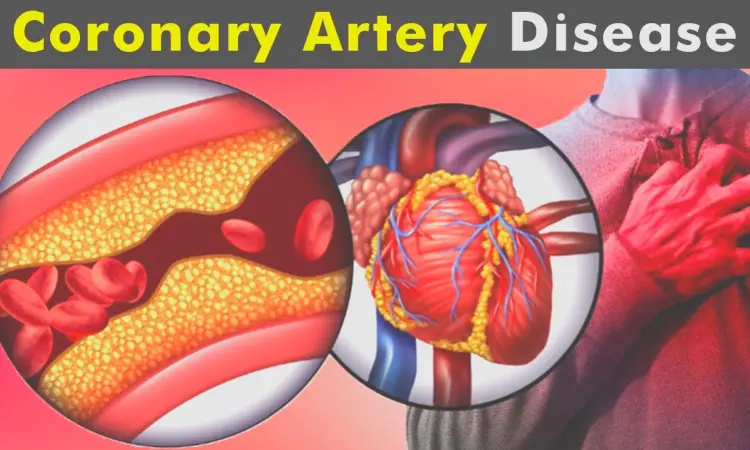- Home
- Medical news & Guidelines
- Anesthesiology
- Cardiology and CTVS
- Critical Care
- Dentistry
- Dermatology
- Diabetes and Endocrinology
- ENT
- Gastroenterology
- Medicine
- Nephrology
- Neurology
- Obstretics-Gynaecology
- Oncology
- Ophthalmology
- Orthopaedics
- Pediatrics-Neonatology
- Psychiatry
- Pulmonology
- Radiology
- Surgery
- Urology
- Laboratory Medicine
- Diet
- Nursing
- Paramedical
- Physiotherapy
- Health news
- Fact Check
- Bone Health Fact Check
- Brain Health Fact Check
- Cancer Related Fact Check
- Child Care Fact Check
- Dental and oral health fact check
- Diabetes and metabolic health fact check
- Diet and Nutrition Fact Check
- Eye and ENT Care Fact Check
- Fitness fact check
- Gut health fact check
- Heart health fact check
- Kidney health fact check
- Medical education fact check
- Men's health fact check
- Respiratory fact check
- Skin and hair care fact check
- Vaccine and Immunization fact check
- Women's health fact check
- AYUSH
- State News
- Andaman and Nicobar Islands
- Andhra Pradesh
- Arunachal Pradesh
- Assam
- Bihar
- Chandigarh
- Chattisgarh
- Dadra and Nagar Haveli
- Daman and Diu
- Delhi
- Goa
- Gujarat
- Haryana
- Himachal Pradesh
- Jammu & Kashmir
- Jharkhand
- Karnataka
- Kerala
- Ladakh
- Lakshadweep
- Madhya Pradesh
- Maharashtra
- Manipur
- Meghalaya
- Mizoram
- Nagaland
- Odisha
- Puducherry
- Punjab
- Rajasthan
- Sikkim
- Tamil Nadu
- Telangana
- Tripura
- Uttar Pradesh
- Uttrakhand
- West Bengal
- Medical Education
- Industry
FIB-4 Score Linked to Higher Mortality in Coronary Artery Disease, ISCHEMIA Trial Finds

USA: A recent post hoc analysis of the landmark ISCHEMIA trial has brought to light a potentially overlooked risk factor in patients with coronary artery disease (CAD)—subclinical liver fibrosis. Published in the Journal of the American Heart Association, the study by Dr. Tulio Caldonazo and colleagues from Weill Cornell Medicine, New York, highlights the prognostic significance of the Fibrosis-4 (FIB-4) index in predicting mortality in CAD patients.
The FIB-4 score, a noninvasive marker used to assess liver fibrosis based on age, liver enzyme levels, and platelet count, has traditionally been utilized in liver disease evaluations. However, its role in cardiovascular risk stratification has remained underexplored—until now.
Drawing from the ISCHEMIA (International Study of Comparative Health Effectiveness With Medical and Invasive Approaches) trial, the researchers analyzed FIB-4 scores in 3,735 randomized participants with stable CAD and available lab values. The goal was to assess whether elevated FIB-4 levels were linked to worse outcomes, particularly all-cause and cardiovascular mortality.
The findings were striking and can be summarized as follows:
- Elevated FIB-4 scores were linked to a 19% increased risk of all-cause mortality (HR 1.19).
- The risk of cardiovascular death was also 19% higher in patients with elevated FIB-4 scores (HR 1.19).
- These associations remained consistent regardless of treatment approach, including PCI, CABG, or medical therapy.
- There was no significant link between FIB-4 scores and non-fatal cardiovascular outcomes such as myocardial infarction, stroke, or heart failure.
- The findings suggest that subclinical liver dysfunction may independently contribute to mortality risk in patients with coronary artery disease.
According to the authors, these findings emphasize the need to broaden traditional cardiovascular risk assessment tools. “Current preprocedural evaluations often overlook hepatic health unless cirrhosis is present,” they noted. “However, our data suggest that even subclinical liver fibrosis may carry important prognostic implications.”
The researchers also acknowledged several limitations. A portion of patients had to be excluded due to missing data, which may limit the generalizability of the results. Additionally, the follow-up period was relatively short and may not fully capture long-term complications or outcomes.
Despite these constraints, the study offers a compelling case for incorporating hepatic function markers like FIB-4 into routine cardiac risk stratification. As liver dysfunction may often go unnoticed, especially in patients without overt symptoms, proactive screening could potentially improve clinical decision-making and patient outcomes in CAD.
The authors concluded, "The analysis from the ISCHEMIA trial underscores that the FIB-4 score—a simple, readily available measure—could serve as a valuable predictor of mortality in coronary artery disease, paving the way for more holistic cardiovascular care."
Reference:
Caldonazo T, Rahouma M, Sandner S, Redfors B, Harik L, Richter M, Kirov H, Doenst T, Gaudino MFL. Association of Subclinical Liver Fibrosis With Death in Patients With Coronary Artery Disease: A Post Hoc Analysis of the ISCHEMIA Trial. J Am Heart Assoc. 2025 Jun 27:e040848. doi: 10.1161/JAHA.124.040848. Epub ahead of print. PMID: 40576034.
Dr Prem Aggarwal, (MD Medicine, DNB Medicine, DNB Cardiology) is a Cardiologist by profession and also the Co-founder and Chairman of Medical Dialogues. He focuses on news and perspectives about cardiology, and medicine related developments at Medical Dialogues. He can be reached out at drprem@medicaldialogues.in


